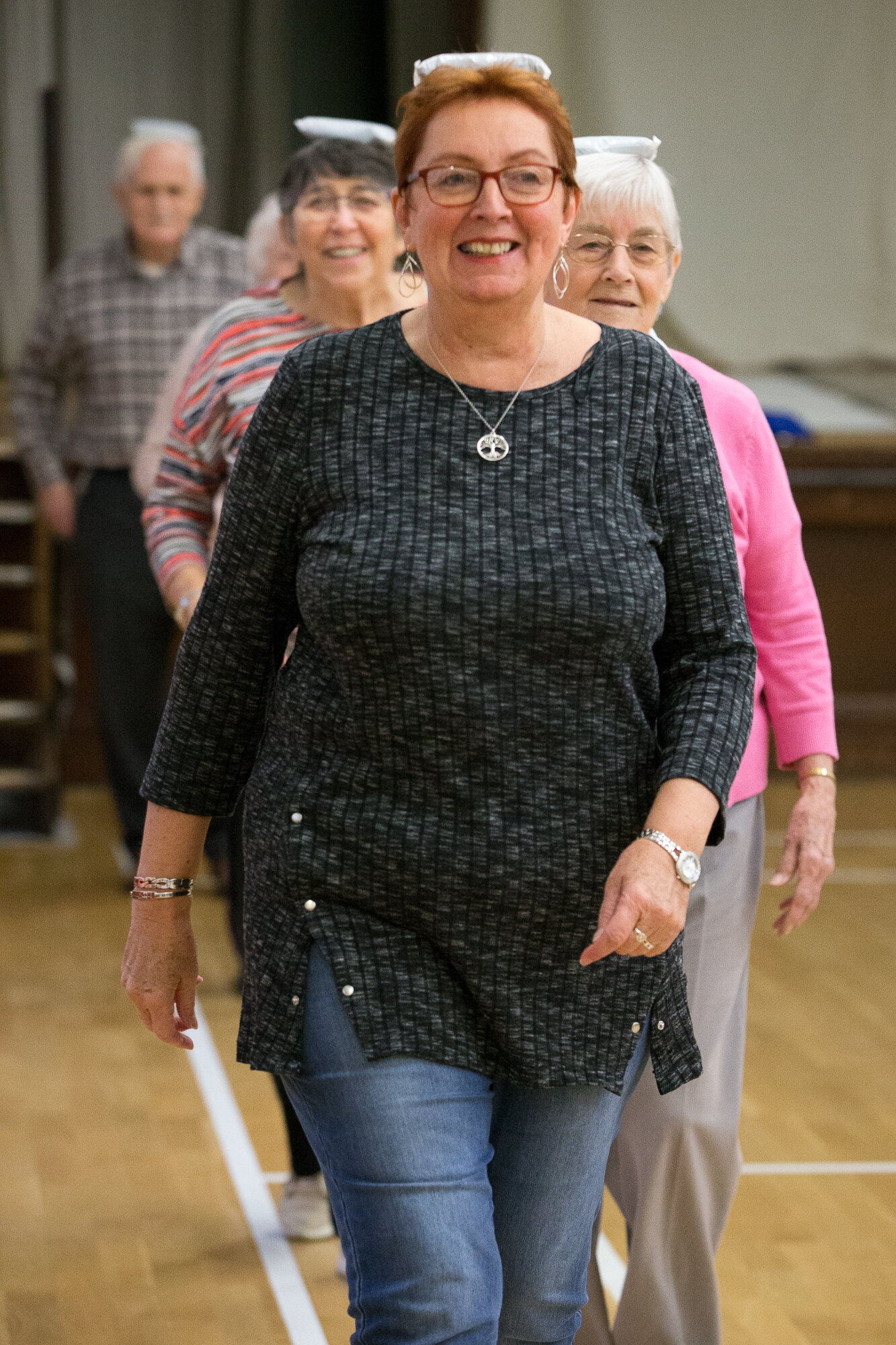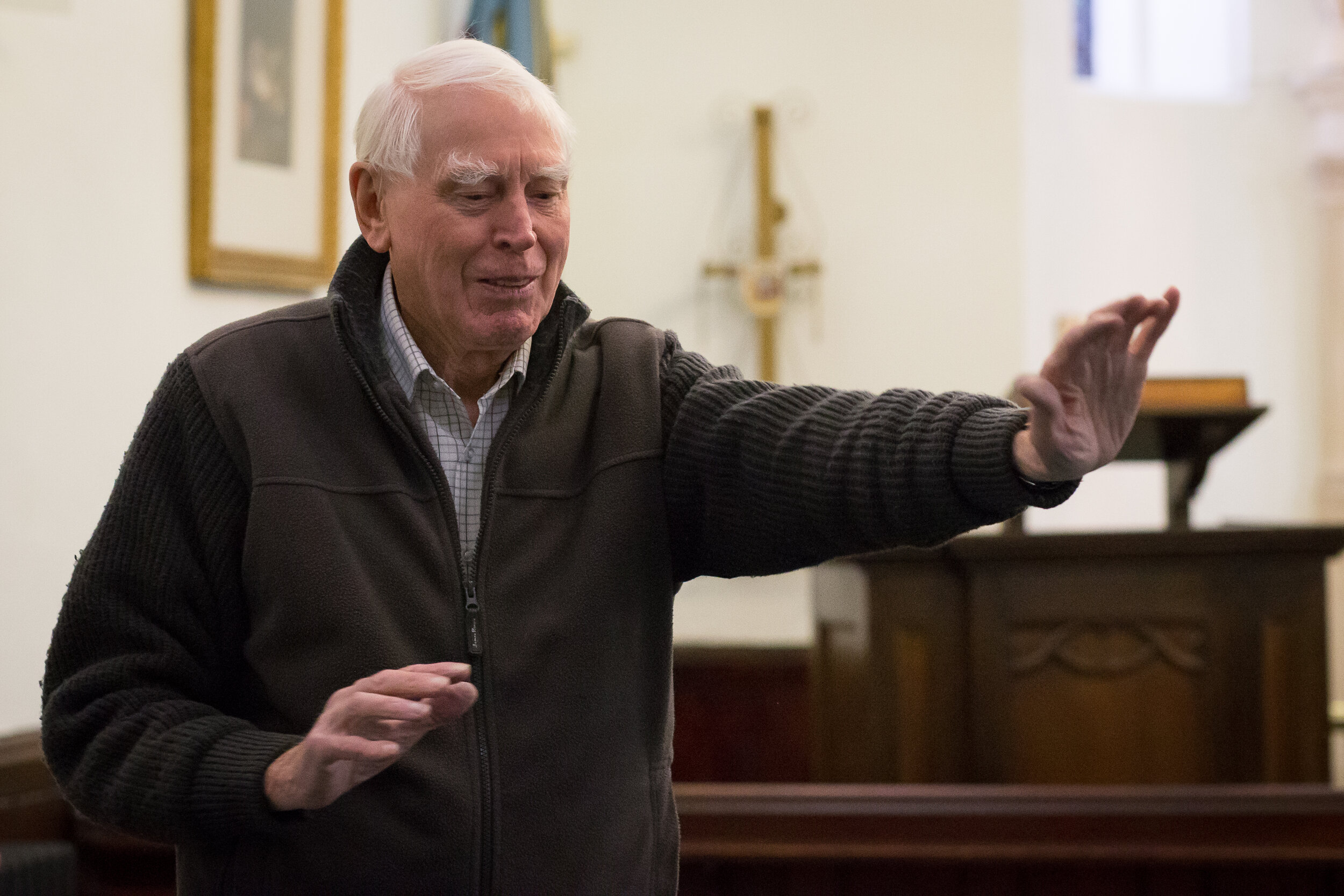
REACT (REtirement in ACTion) is a community-based group physical activity and behavioural maintenance programme. It combines exercise, education and social activities designed for older adults starting to show mobility decline.
What is REACT?
REACT (REtirement in ACTion) is a physical activity programme with a focus on strength, balance, mobility - and enjoyment! It incorporates educational sessions on healthy ageing and behaviour change strategies and importantly, includes weekly social sessions to build group cohesion and tackle loneliness.
The group-based physical activity and behavioural maintenance programme has proven to be a cost-effective, low-resource way of maintaining good physical function in older adults who are at risk of declining mobility.
REACT helps create confidence and develop a level of independence. It encourages participants to seek out and engage in physical activity outside of the support structure of REACT classes and sessions. Participants build physical activity into their lives, build a habit, which helps them maintain their physical function providing both health benefits and cost savings in terms of NHS and social care services.
Why is REACT needed?
According to the Office of National Statistics, 1 in 5 people are currently 65 years old or over. By 2050 this is likely to have risen to 1 in 4. The evidence for the positive impact of physical activity on physical function and subsequent independence and good health is overwhelming. However, as people age, generally, they become less physically active and therefore miss the benefits regular physical activity can bring. A likely outcome of this is an increasing reliance on health and social care services.
The REACT programme provides a cost-effective real-world exercise and behaviour maintenance intervention that can help older adults improve and maintain physical function and develop positive physical activity habits.
REACT aims & objectives
Engage older adults who have some difficulty with their mobility in appropriate strength and conditioning exercise classes
Increase physical ability to perform functional movements (sit to stand from a chair, balancing, walking, etc).
Increase confidence for attending structured activity classes and/or engaging in more lifestyle activities
Increase enjoyment of being active
Increase perception of the importance of keeping mobile and active
Create a social community to tackle loneliness and to help the participants become and remain active outside of the REACT programme
What is the evidence it works?
REACT was a comprehensive four and a half year study involving 777 participants aged between 65 and 98 years old. These older adults were identified as beginning to have some difficulty with their mobility. The trial took place at three major sites across the UK, Bristol/Bath, Birmingham and Devon.
Results showed, that compared to a control group, those taking part in the REACT programme had a significantly better physical function after 6 and 12 months. Most importantly this advantage was maintained 12 months after the structured activity had finished.
Economic analysis also showed REACT to be cost-effective:
The average reduction in health care costs was £725 per person
Over the lifetime of participants, total cost savings were estimated to be much higher
Benefits of REACT
REACT has been shown to prevent and even reverse declines in physical function among its participants. Its behaviour maintenance sessions help cement confidence and increase social interaction which led to greater take up of additional physical activity outside of the REACT programme.
Participants reported that the engagement with the REACT programme was enjoyable and led to several physical, social and mental well-being benefits.
These positive benefits in the long term can lead to significant life-long cost savings in terms of NHS and personal social care.







The Story of REACT
Design
A multi-centre, pragmatic, two-arm, parallel-group randomised controlled trial (RCT) with a 24 month follow-up, comparing REACT with a minimal intervention control condition and parallel process and health economic evaluations.
Trial registraction - ISRCTN45627165
Participants
777 sedentary men and women aged 65+ who are at risk of major mobility limitations but who are still ambulatory, were randomised in a 1:1 ratio to either intervention or control group.
This study was funded by the National Institute for Health Research (NIHR) – Public Health Research Programme (13/164/51). The views expressed are those of the author(s) and not necessarily those of the NIHR or the Department of Health and Social Care. The study was generously supported by the Clinical Research Network at each site.
The funder approved the study design but had no role in data collection, data analysis, data interpretation and publications related to the REACT study dataset.
Timings
REACT was a 54 month study. Between June 2016 and October 2017, 777 participants were randomised to the intervention (410) and control (367) arms.






